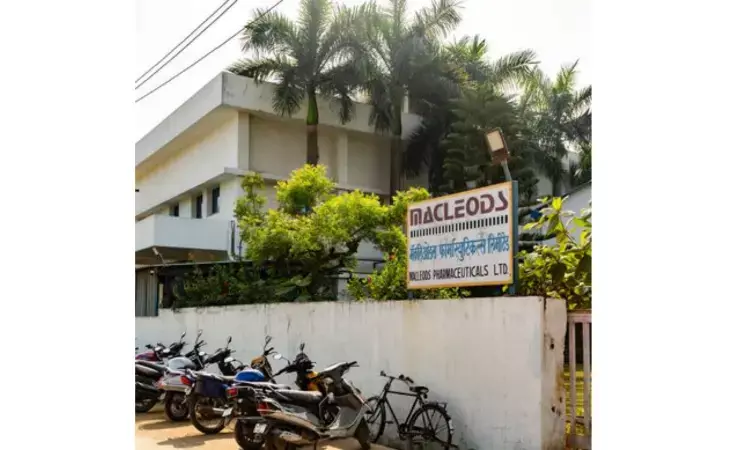- Home
- Medical news & Guidelines
- Anesthesiology
- Cardiology and CTVS
- Critical Care
- Dentistry
- Dermatology
- Diabetes and Endocrinology
- ENT
- Gastroenterology
- Medicine
- Nephrology
- Neurology
- Obstretics-Gynaecology
- Oncology
- Ophthalmology
- Orthopaedics
- Pediatrics-Neonatology
- Psychiatry
- Pulmonology
- Radiology
- Surgery
- Urology
- Laboratory Medicine
- Diet
- Nursing
- Paramedical
- Physiotherapy
- Health news
- Fact Check
- Bone Health Fact Check
- Brain Health Fact Check
- Cancer Related Fact Check
- Child Care Fact Check
- Dental and oral health fact check
- Diabetes and metabolic health fact check
- Diet and Nutrition Fact Check
- Eye and ENT Care Fact Check
- Fitness fact check
- Gut health fact check
- Heart health fact check
- Kidney health fact check
- Medical education fact check
- Men's health fact check
- Respiratory fact check
- Skin and hair care fact check
- Vaccine and Immunization fact check
- Women's health fact check
- AYUSH
- State News
- Andaman and Nicobar Islands
- Andhra Pradesh
- Arunachal Pradesh
- Assam
- Bihar
- Chandigarh
- Chattisgarh
- Dadra and Nagar Haveli
- Daman and Diu
- Delhi
- Goa
- Gujarat
- Haryana
- Himachal Pradesh
- Jammu & Kashmir
- Jharkhand
- Karnataka
- Kerala
- Ladakh
- Lakshadweep
- Madhya Pradesh
- Maharashtra
- Manipur
- Meghalaya
- Mizoram
- Nagaland
- Odisha
- Puducherry
- Punjab
- Rajasthan
- Sikkim
- Tamil Nadu
- Telangana
- Tripura
- Uttar Pradesh
- Uttrakhand
- West Bengal
- Medical Education
- Industry
Macleod Pharma gets CDSCO panel conditional nod to study FDC Sitagliptin, Metformin, Glimepiride

New Delhi: Pharmaceutical major, Macleods Pharmaceuticals has got the go-head from the Subject Expert Committee (SEC) of the Central Drug Standard Control Organization (CDSCO) to conduct a bioequivalence study and phase 3 clinical trial study of popular antidiabetic fixed dose combination drug containing Sitagliptin, Metformin Hydrochloride and Glimepiride.
This nod is subject to condition that phase III clinical trial should be double blinded and the drop out rate should not be more than 20%.
In addition, the committee also advised that the firm should present the data on 75 patients to the committee for assessment of the FDC's safety and efficacy as well as approvability before moving forward with the research on the remaining patients.
This came after drug maker Macleods Pharmaceuticals presented their proposal for antidiabetic fixed dose combination drug Sitagliptin IP 50mg/50mg/50mg/50 mg plus Metformin Hydrochloride IP 500mg/500mg/1000mg/1000mg plus Glimepiride IP 1mg/2mg/1mg/2mg tablet along with bioequivalence study (BE) and phase III study protocol before the committee.
Sitagliptin is an oral dipeptidyl peptidase-4 (DPP-4) inhibitor used in conjunction with diet and exercise to improve glycemic control in patients with type 2 diabetes mellitus. Inhibition of DPP-4 by sitagliptin slows DPP-4 mediated inactivation of incretins like GLP-1 and GIP.
Incretins are released throughout the day and upregulated in response to meals as part of glucose homeostasis. Reduced inhibition of incretins increase insulin synthesis and decrease glucagon release in a manner dependant on glucose concentrations. These effects lead to an overall increase in blood glucose control which is demonstrated by reduced glycosylated hemoglobin (HbA1c).
Metformin is a biguanide antihyperglycemic used in conjunction with diet and exercise for glycemic control in type 2 diabetes mellitus. Metformin's mechanisms of action are unique from other classes of oral antihyperglycemic drugs. Metformin decreases blood glucose levels by decreasing hepatic glucose production (also called gluconeogenesis), decreasing the intestinal absorption of glucose, and increasing insulin sensitivity by increasing peripheral glucose uptake and utilization.
Glimepiride is a member of the second-generation sulfonylurea (SU) drug class used for the management of type 2 diabetes mellitus (T2DM) to improve glycemic control. Glimepiride works by stimulating the secretion of insulin granules from pancreatic islet beta cells by blocking ATP-sensitive potassium channels (KATP channels) and causing depolarization of the beta cells.
At recent SEC meeting for Endocrinology & Metabolism, the expert panel noted that the firm is proposing phase III clinical trial study of only one strength i.e. FDC of Sitagliptin 50mg plus Metformin (ER) 1000mg plus Glimepiride 1mg tablet.
The committee extensively reviewed the proposal presented by the drug maker Macleods Pharmaceuticals for antidiabetic fixed dose combination drug Sitagliptin IP 50mg/50mg/50mg/50 mg plus Metformin Hydrochloride IP 500mg/500mg/1000mg/1000mg plus Glimepiride IP 1mg/2mg/1mg/2mg tablet along with bioequivalence study (BE) and phase III study protocol before the committee.
After detailed deliberation, the committee recommended for grant of permission for conducting the BE study and phase III clinical trial with the condition that
1. Phase III clinical trial should be double blinded.
2. Drop out rate should not be more than 20%.
Accordingly, the expert panel directed the firm that the revised phase III clinical trial protocol should be submitted to CDSCO.
Further the committee also recommended that the firm should initially present the data on 75 patients before the committee for assessing the safety and efficacy as approvability of this FDC before considering the continuation of the study on the remaining patients.
As regard to other strengths, the committee opined that decision may be taken based on the outcome of the phase III clinical trial study results.
Mpharm (Pharmacology)
Susmita Roy, B pharm, M pharm Pharmacology, graduated from Gurunanak Institute of Pharmaceutical Science and Technology with a bachelor's degree in Pharmacy. She is currently working as an assistant professor at Haldia Institute of Pharmacy in West Bengal. She has been part of Medical Dialogues since March 2021.


